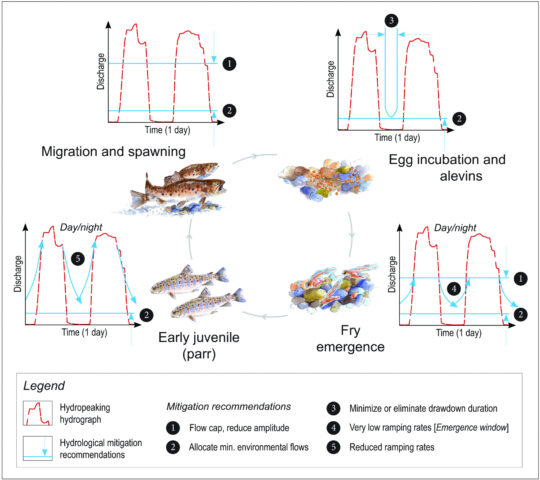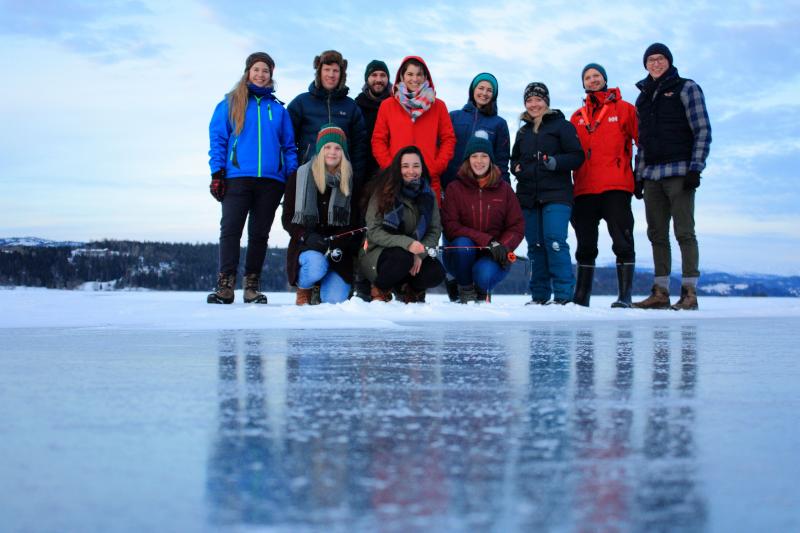Freshwater scientists have been studying the phenomenon of “hydropeaking”, the artificial variation in flow below hydropower plants, for around 25 years. One particular aspect has been the harmful effects of flows, fluctuating in some cases on an hourly basis, upon salmonid fish species. In response to the growing awareness of the need to reduce the impacts of hydropeaking, a team of freshwater ecologists and engineers recently published a timely review article. One of the authors, Daniel Hayes (a PhD candidate at the University of Natural Resources and Life Sciences, Vienna) tells us a little more about the issue.
Hydropeaking – can the impacts on salmonids be reduced?
Posted on April 28, 2020


